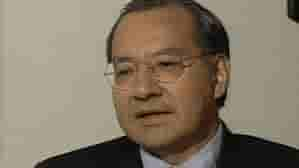In a startling revelation, a retired U.S. Department of State employee, Victor Manuel Rocha, who served on the National Security Council and as a U.S. ambassador, has been charged with multiple federal crimes, including espionage, after allegedly acting as an agent of the Cuban regime for over four decades. The charges, filed on December 4, paint a picture of one of the most significant and enduring infiltrations of the U.S. government by a foreign agent in history.

Former U.S. Ambassador Charged with Espionage for Cuba: Decades-Long Infiltration Revealed
The Justice Department has brought forth three primary federal charges against Rocha: conspiring to act as an agent of a foreign government without prior notification to the Attorney General, acting as an agent of a foreign government without prior notification to the Attorney General, and using a passport obtained by false statement. Attorney General Merrick Garland has characterized this case as one of the “highest-reaching and longest-lasting infiltrations of the United States government by a foreign agent.”
According to the criminal complaint filed on December 1, Rocha, originally from Colombia, became a naturalized U.S. citizen in 1978 and allegedly started acting as a covert agent for Cuba’s General Directorate of Intelligence by 1981. The Justice Department asserts that Rocha strategically secured positions within the U.S. government between 1981 and 2002, including roles at the U.S. Department of State, granting him access to classified information.
Even after his tenure at the Department of State from 2000 to 2002 as the U.S. ambassador to Bolivia, Rocha is accused of continuing to support Cuba’s intelligence services. During the period from around 2006 to 2012, when he served as an advisor to the Commander of the U.S. Southern Command, Rocha allegedly engaged in activities aiding Cuban intelligence.
The charges reveal that Rocha kept his status as a Cuban agent secret, using false and misleading information to maintain his clandestine mission. He traveled outside the United States to meet with Cuban intelligence operatives and made false statements to obtain travel documents. The complaint outlines a pattern of deception and reveals that Rocha referred to the United States as “the enemy” and spoke of himself and Cuba collectively.
The arrest has not only sent shockwaves through diplomatic circles but has also sparked attention in Bolivia, where Rocha is remembered for his controversial comments that boosted former socialist President Evo Morales to national prominence ahead of the 2002 general election.
As the legal proceedings unfold, Rocha is presumed innocent until proven guilty beyond a reasonable doubt. The charges bring to light a decades-long espionage operation that has allegedly compromised U.S. national security. A detention hearing is tentatively scheduled for Wednesday, and the case is poised to become a focal point in the ongoing dialogue about the vulnerabilities of national security structures to covert foreign influence.
















